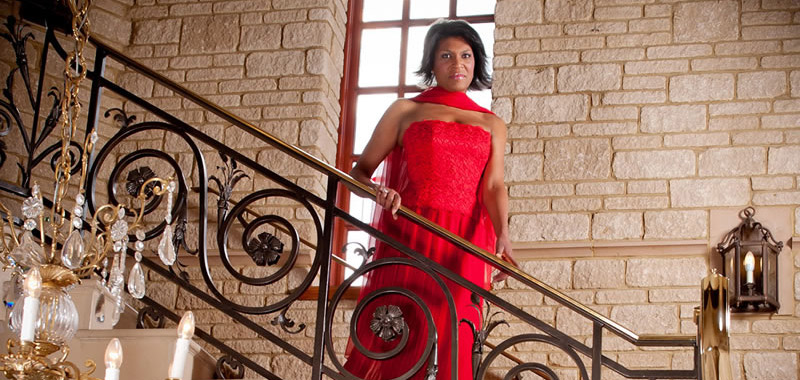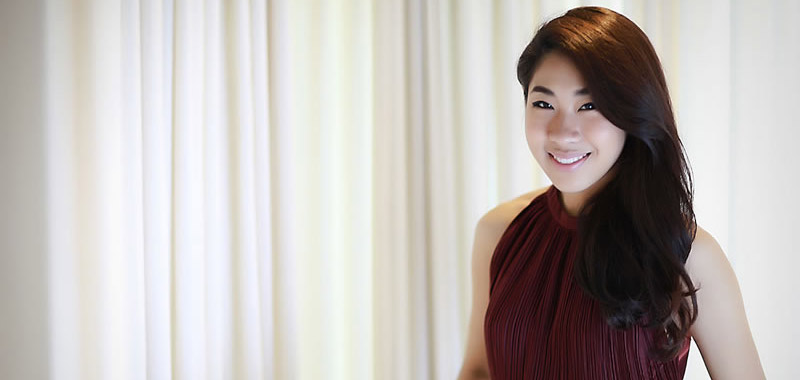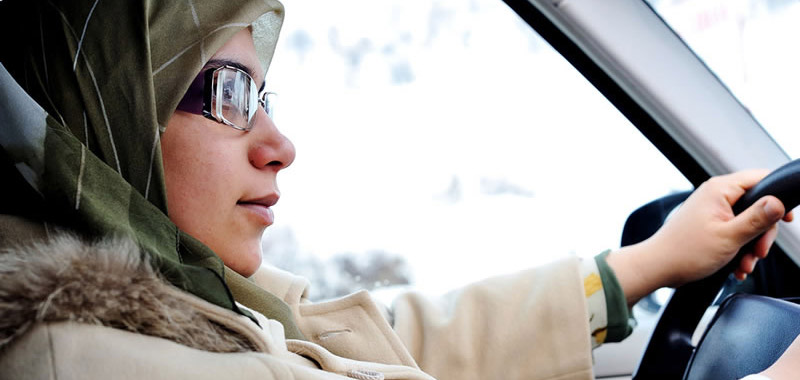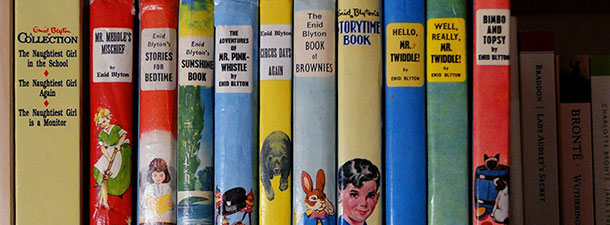
The Saga of a Novel: One Woman’s Story
Marzo 5, 2015
Kem Issara: Fashion and Business in the 21st Century
Marzo 7, 2015In the West it has become almost a truism by Rosalie Rivett that Muslim women, especially those in the Arab world, are oppressed, voiceless and – to put it bluntly – miserable. As with most such viewpoints in the current clash of cultures, it is one-dimensional, stereotypical, and no doubt convenient for propaganda purposes. It also serves in and of itself to rob Muslim women of their full humanity. The real picture is of course, more complex. And while it cannot be denied that there are great struggles for women in Muslim cultures in the present day, the women themselves are more active agents in their own stories than Western narratives allow. This is true especially in the area of government and diplomacy – among the last bastions of male privilege and prerogatives.
The position of women in Arab countries has changed greatly in the last few decades. Access to education, birth control, and the work place has intensified women’s search for independence. However, each advance is resisted and challenged. Attitudes, entrenched in culture and tradition, are harder to change than legislation. The elders are culture-bound and, often, breaking barriers in government and society is the most difficult hurdle of all for women.
Across Arab countries, women – secular, liberal and Muslim, sometimes alone, sometimes in groups or organisations – are challenging traditions, demanding greater rights, reinterpreting the Koran and Muslim history. A religion that originally offered women greater freedom than was known in other traditional societies has come to be associated with their repression. Muslim feminists are reclaiming the independence and respect that were accorded to them during the early centuries of Islam.
Professional Muslim women have different aspirations embedded in the ideal of equality. They seek equal opportunity and status to their male counterparts. Many of them have been exposed to overseas cultures, and international education and this further opens up their minds to their potential. Notwithstanding the major leaps forward in the development and liberation of women, a lot still needs to be done. On the whole, government and politics, especially in the Arab world, are still predominantly male-dominated. In this environment, the role of Muslim women in diplomacy is transitional. In London, in July 2013, more than ten percent of diplomats are Muslim females. The Ambassadors of Bahrain, Lebanon and Morocco are women and until recently there was a female Jordanian Ambassador, while the number of women in the diplomatic corps is steadily rising.
The gains that have been achieved by Muslim women in diplomacy include not only the fact that there are numerous Muslim women in ambassadorial positions but that there are also many diplomats in senior diplomatic posts in international organisations, such as the United Nations and the Commonwealth. There are women who hold ministerial office within their own governments and others who have senior positions in industry. They are part of the diplomatic and government decision-making process and the presence of women in these roles is poised to continue to grow in the years to come. For example, in Saudi Arabia, King Abdullah has instituted a huge scholarship project, which sponsors about 100,000 students for overseas studies. Many of these scholarships have been won by women. Earlier this year thirty professional women were appointed to the Shura Council where their role includes offering advice to the king. It is not difficult to see that these positions will lead to future diplomatic posts. In addition, some of Alwaleed bin Talal, a very energetic, enthusiastic and entrepreneurial young royal has been proactive, with about 65% of his workforce being female, including the first Saudi female pilot. In 2015, Saudi women will be able to vote in and to contest municipal elections. In my opinion, these are the embryonic stages of considerable progress in promoting Muslim women in government and diplomacy.
In patriarchal societies such as those found in the Arab world, the difficulties women have to overcome in order to achieve positions of power, which traditionally are controlled by men, are monumental. This is the case in most spheres, but none more so than in the diplomatic arena. Muslim women try, like other women who move in a typical male environment, to use persuasion, knowledge and wisdom to counteract prejudice. Where this does not work, then they may have to resort to national, and in some cases international, law. The main obstacles in breaking the mould created by male domination in the Arabic world are based on different, and some say convenient, interpretations of Koranic law.
Contrary to popular belief, many Muslim women in past Islamic societies did not live a segregated life, such as that seen in some strict contemporary regimes. Life in traditional Islam had a certain amount of tolerance between men and women, who mingled easily, even in public. In current times, however, there is widespread disparity in the treatment of men and women. Muslim women are striving to re-establish the enhanced tolerance that was prevalent in the so-called ‘original Islam’. Unfortunately, there are historical facts that document the submission, cruelty and distress women have endured and are still suffering. In certain regimes, the social inequality between men and women is still very starkly evident.
It is often thought that these situations are mainly due to a religion that encourages male predominance over women or a purely masculine interpretation of religion. Personally, I think the problem is less of a religious nature and more of a cultural one. The ambiguity lies in the flexibility of Koranic law and the absolute freedom of interpretation. Over the centuries the Koranic text has been used both in a conservative and intolerant way and also in a more intellectual and open dialogue with a predisposition to tolerance and forgiveness. This is what Muslim women are struggling to regain. Discussing women’s empowerment seems strange when there are governments that do not allow women the right to drive, to vote or even hold a passport. Naturally, women-friendly laws will take a while to implement, but let’s not forget, that even in the United Kingdom, universal suffrage was only granted in 1928 and it was certainly unthinkable that there could be a female prime minister just half a century later. In our modern, instant, ‘now’, society, there is a tendency to forget these stories and people hope they can change attitudes very quickly. A process of cultural change needs its gestation period to mature. It is only in those countries where Sharia law is practised as the only Koranic law that these differences stand out more. But even these governments are showing signs of readiness to change. These issues provoke continuous disputes between modernisers and conservatives. Iran established the right of equality in the case of inheritance and in Algeria, the attempt to introduce a new family code has led to the protests never before seen by women’s associations. Other protests have taken place in countries such as Morocco, where the government had to withdraw a law that restricted the rights of women. The Turkish parliament had extended equal parental rights to women. However, things have gone several steps backwards in Turkey and women’s rights are in danger; the image of ‘the woman in red’ (being targeted by tear gas) has become a symbol of antigovernment protest and has drawn attention to the treatment of women in Muslim countries. In Turkey, women are fighting against repression by the state, which they see as controlling their minds, bodies and their freedom. Modern technology enables their protests to break through any parochial isolation as situations are instantly ‘tweeted’ worldwide.
On the other hand, these are new and dangerous times in Egypt as much of the progress that women had made in recent years has been reversed. Women protested with their menfolk during the Arab Spring, calling for democracy and freedom. But two years later their rights seem to have been eroded. There is much more uncontrolled sexual harassment and the new constitution has removed recognition of women’s equality. Mubarak seemed to have been a defender of women’s issues but the backlash against his dictatorship also had repercussions for women – they lost the right to initiate divorce, protection against child marriage, and the ban on female genital mutilation. Violence and gang rape are very much on the increase and it seems as though these are practically condoned by the authorities in order to transmit the message to men to keep their women at home. When these atrocities occur they often go unreported as those in power see to it they are beyond editorial reach. The media have to please whoever is in power as non-compliance is met by violence.
In other countries like Kuwait and the United Arab Emirates and, beyond the Middle East, in countries like Azerbaijan and others in Central Asia, South Asia and Southeast Asia there are tangible signs that even more radical Islamist parties are implementing a modernisation process. But Rome was not built in a day.
At an international, and professional, level there does not seem to be much difference between the Muslim woman and the Western woman, especially with the new generation of Muslim women who are much more determined in achieving their goals. I think we should look beyond the clash of cultures There are many examples that show women are taking more control of their lives. We see younger Arab women participating in causes such as promoting family planning centres, fighting sexual discrimination, demanding parental responsibility, creating centres for single mothers, protesting against rights that protect men for certain crimes such as rape, as we have seen in recent, horrific examples in India. In Egypt, Lebanon, Syria, Iraq, Tunisia, Algeria, Turkey and Indonesia women have the right to access education and have become part of the professional fabric in the political, and public sector. This is directly related to the need to build more democratic societies in the Muslim world.
Does this evolution clash with the fact that many Muslim women choose to wear the hijab? In some views it is an Islamic statement of radicalism rather than emancipation. This is a question of freedom and of personal choice. I do not believe that it is a symbol of radicalism. A protest against the hijab is seen as a protest against Islam and not against patriarchy, thus alienating those who seek their rights within a Muslim context. Many Muslim women fear that some aspects of their faith are being eroded and, as a result, wearing the veil is a statement of their rights to uphold loyalty to their traditions. Others fight for their independence in a different way by protesting in the public square and demanding more responsibility and emancipation in the appropriate forums.
Islamic feminists like Professor Leila Ahmed, Professor of Women’s studies and Religion at the Harvard Divinity School, in her seminal work, Women and Gender in Islam (1992), argues that the oppressive practices to which women in the Middle East are subjected are due to the prevalence of patriarchal interpretations of Islam rather than Islam itself. Dr Fatema Mernissi, a lecturer at the Mohammed V University of Rabat and a research scholar at the University Institute for Scientific Research in that city, echoes the same sentiments in The Veil and the Male Elite: A Feminist Interpretation of Islam, a quasihistorical study of the role of the wives of Muhammad. And Dr Shirin Ebadi, 2003 Nobel Peace Laureate, an Iranian lawyer, former judge and human rights activist and founder of Defenders of Human Rights Center in Iran was awarded the Nobel Peace Prize for her significant and pioneering efforts for democracy and human rights, especially women’s, children’s, and refugee rights. She was the first ever Iranian to receive the prize. These highly acclaimed women have been major critics of the anti-female power structures. Their protests are a result of decades of intellectual debates and research by Muslim women and therefore, their arguments are grounded in historical, academic fact.
Just as it is desirable that Muslim women have the liberty and independence they crave for, ultimately the choice of how to exercise that right lies with the individual woman herself. Sisterhood can only support their claim to freedom from restraints.
Women speak with a new voice in order to stand up for their rights – it does not really matter how they do it whether it is in a tradional way or a modern way – the most important thing is that they win the prerogative of freedom of choice and freedom from oppression.




